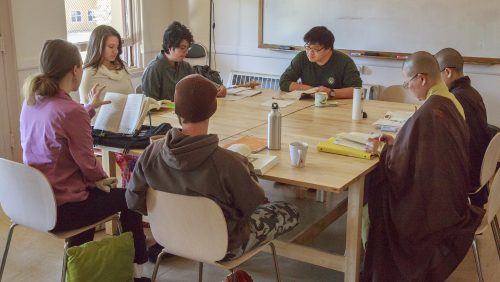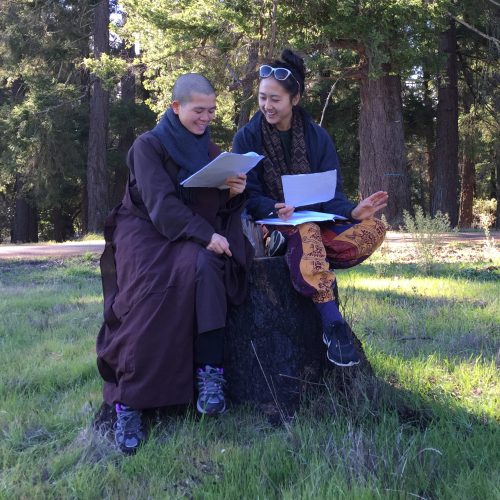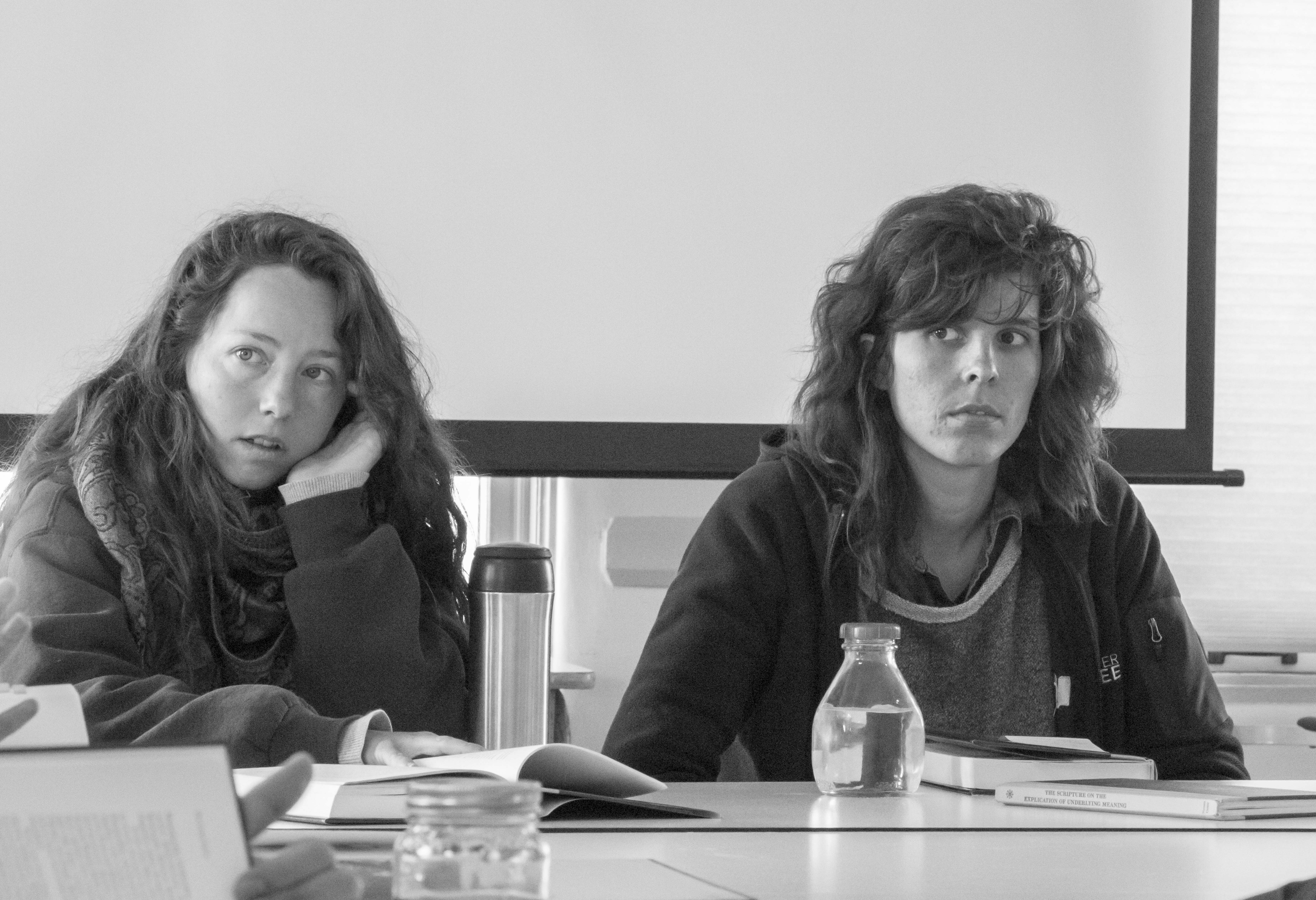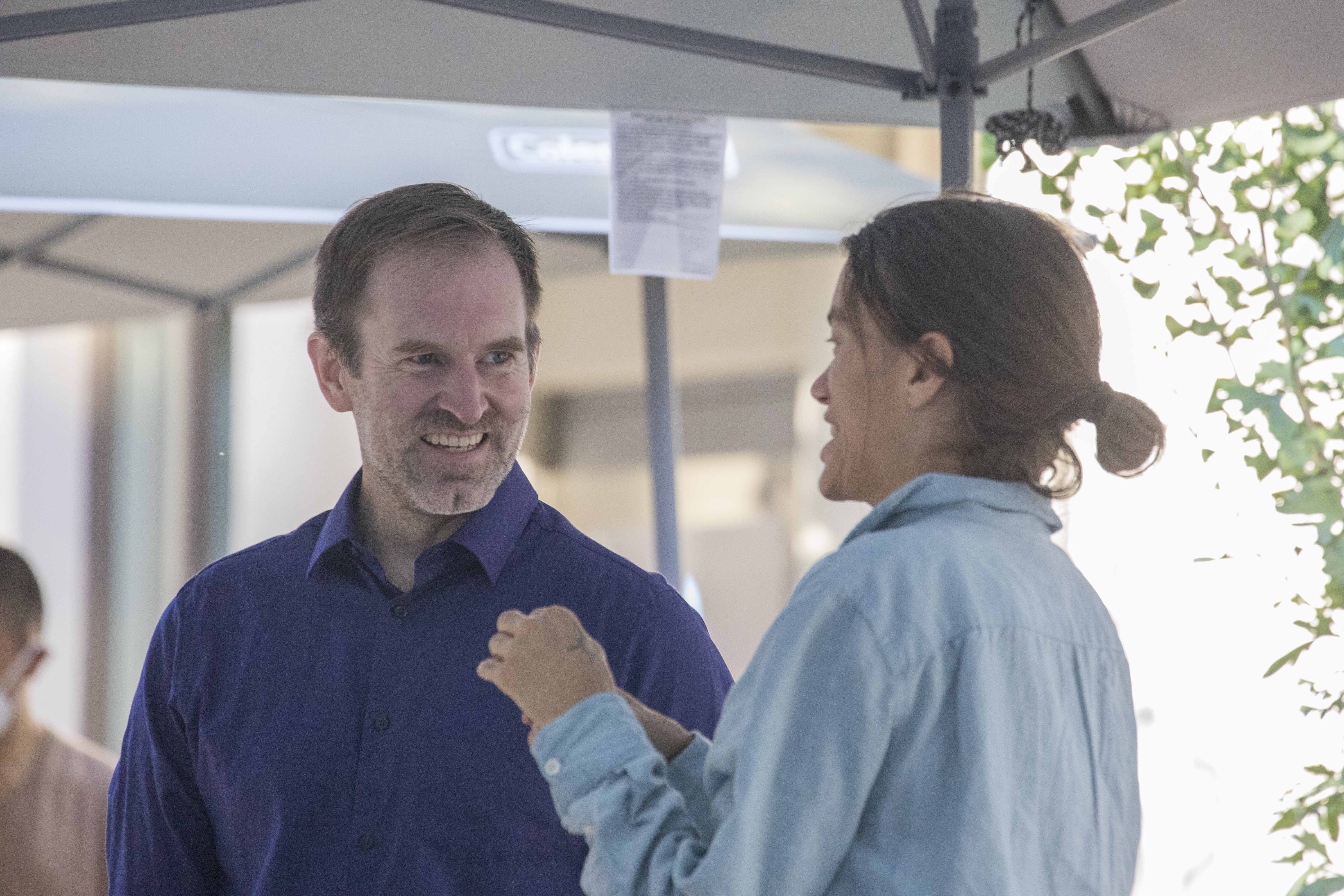Shared inquiry—where you and your classmates read and discuss great books from all over the world—is at the heart of what we do at DRBU. This model invites and challenges you to take charge of your own learning. In conversation with classmates, professors, and the text, you’ll be encouraged to question and be questioned, to dive deep and consider possibilities you might not imagine on your own.
Key Principles of Shared Inquiry
The Professor as a Guide
DRBU professors don’t lecture. They support you and your classmates in conversation by helping to guide and shape your discussion. They ask questions and offer prompts for closer consideration. Rather than presenting a certain interpretation of the text, our professors encourage you to dig in and work together to produce new insights and understandings.
A Triangle of Constructive Tension
At DRBU, it takes three to tango: the professor, the reading, and you. All three challenge and support each other in what we think of as constructive tension. This triangle of tension can lead to new perspectives, and it even gives you the chance to test the wisdom of the past—what does it have to offer for life in our world today?
Radically Free, Radically Responsible
True freedom means that we take responsibility for ourselves. Through shared inquiry, we want to help our students discover in themselves individuals who can stand on their own and navigate the world with heart and mind open and in harmony.
There are so many times where I’ve gone back to my dorm room and laid down and thought: I’ve just had the most inspiring, fascinating, mind-warping conversation of my whole life. Then I go to school the next day and do it all over again.
 Phoenix Winters
BA '24
Phoenix Winters
BA '24

“Good teaching does not tell the students what they need to have or know, but helps them explore what it is that’s worth wanting and important to know.”
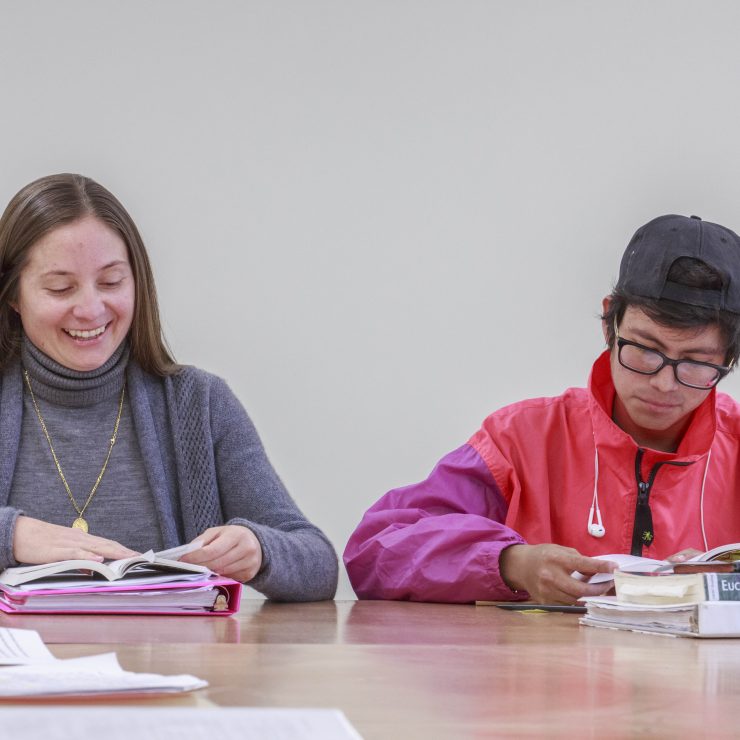
How does shared inquiry work?
Education is a conversation, but that doesn’t mean it’s simple or easy. Shared inquiry is a collaborative practice that takes time to master. Working together with your classmates, you’ll go deep into what you read and the questions that come out of it. Close attention to nuance and complexity will lead you to surprising new insights and perspectives.
Here’s some advice for before, during, and after class:
- Preparation: Since you’ll be discussing what you read in class, preparation is key. You may find it helpful to take notes, highlight important passages, write down any questions you have, or reflect on major ideas and themes in the text.
- The discussion itself: Be ready to talk, but especially be ready to listen. Listening to others, listening to the text, listening to ourselves deep down where we don’t always listen—listening and responding with care and consideration allows us to let go of our assumptions and open ourselves to different points of view.
- Reflection: The ultimate aim of education is not a higher test score but a more fulfilling life. That’s why we encourage you to reflect on what you’ve talked about in class, to see if you can bring it into your everyday experience.
